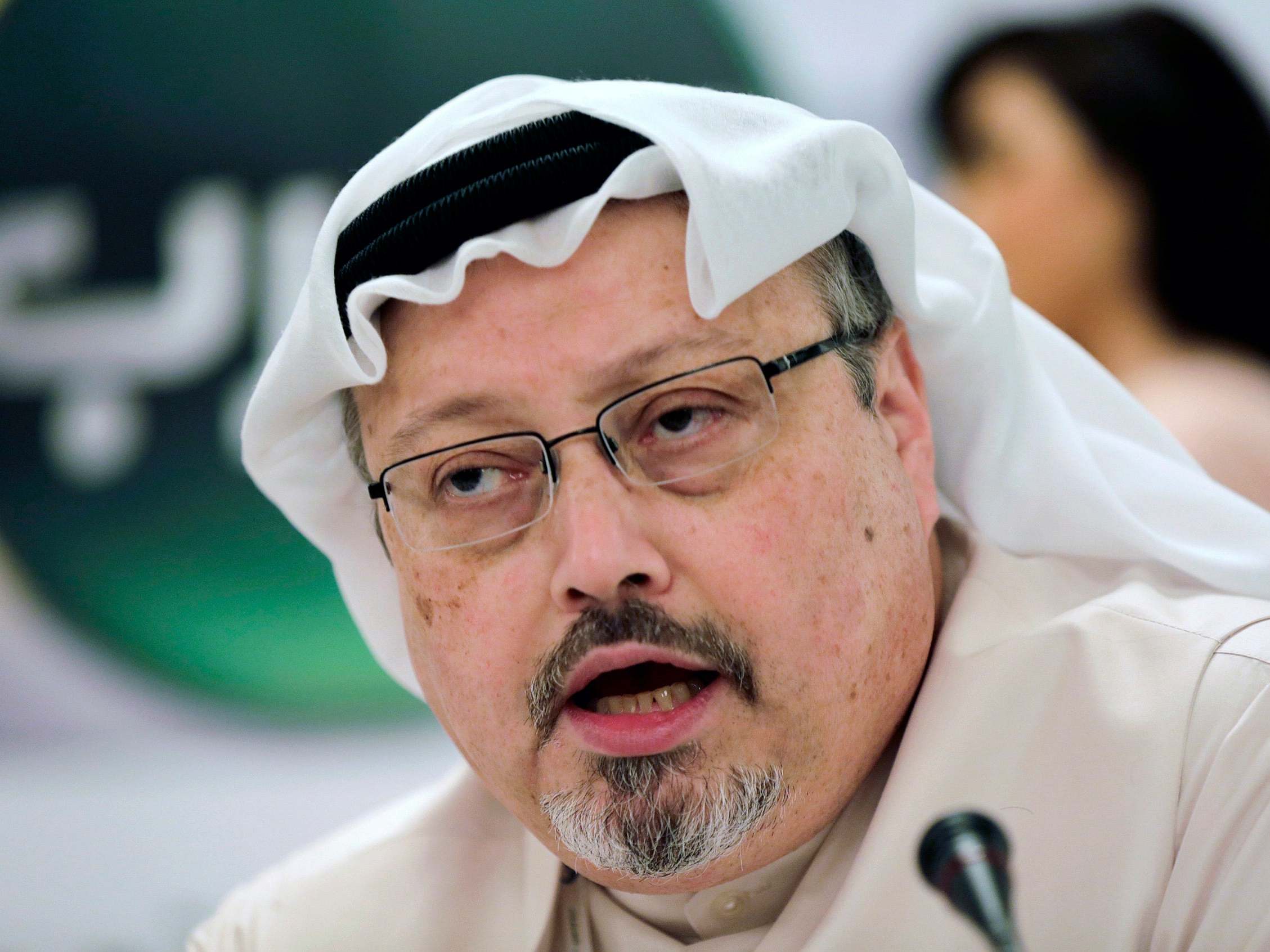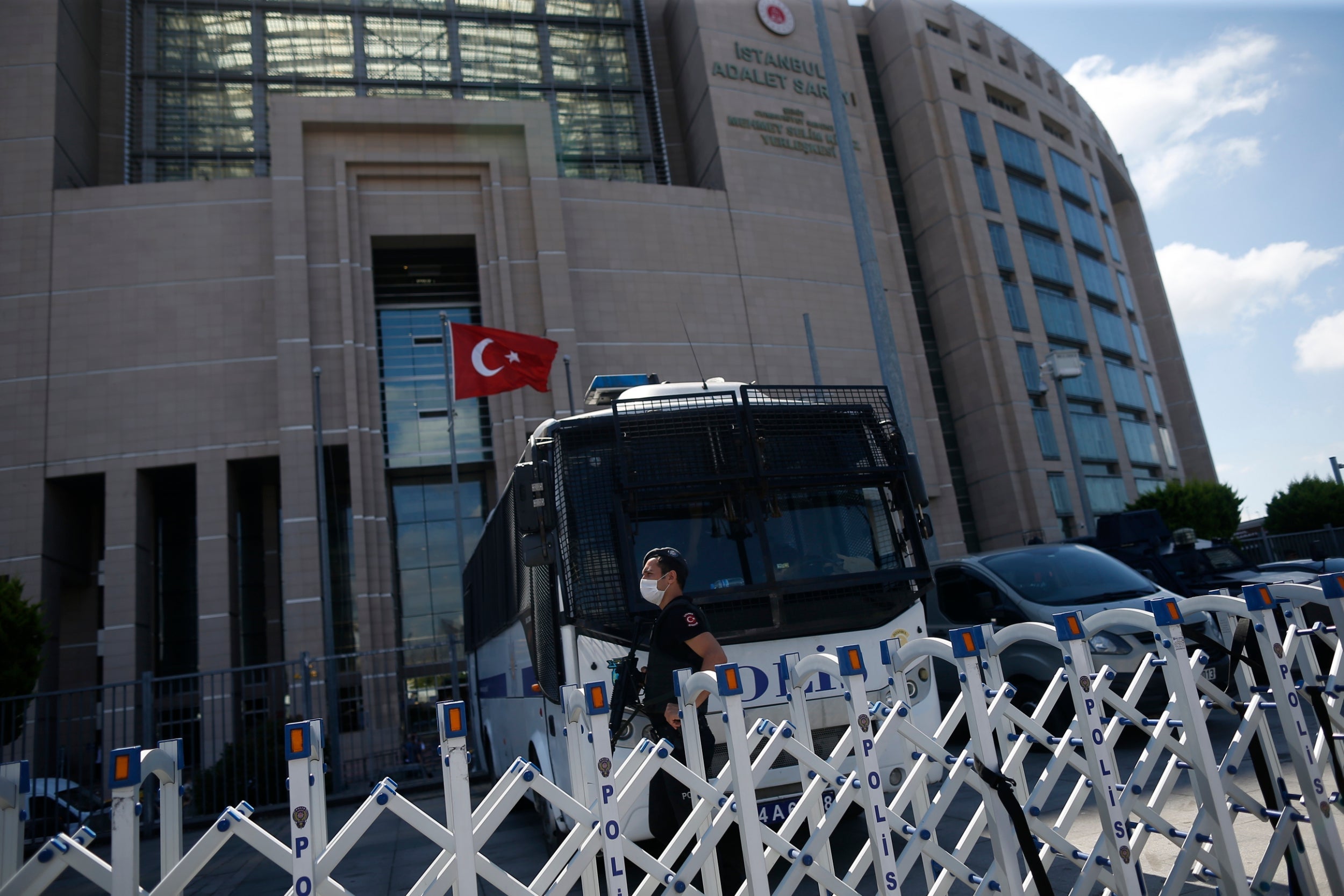Jamal Khashoggi: New details surrounding journalist’s death emerge as Turkey begins trial without Saudi suspects
Alleged killers are all safely in Saudi Arabia after the kingdom refused to extradite them
Your support helps us to tell the story
From reproductive rights to climate change to Big Tech, The Independent is on the ground when the story is developing. Whether it's investigating the financials of Elon Musk's pro-Trump PAC or producing our latest documentary, 'The A Word', which shines a light on the American women fighting for reproductive rights, we know how important it is to parse out the facts from the messaging.
At such a critical moment in US history, we need reporters on the ground. Your donation allows us to keep sending journalists to speak to both sides of the story.
The Independent is trusted by Americans across the entire political spectrum. And unlike many other quality news outlets, we choose not to lock Americans out of our reporting and analysis with paywalls. We believe quality journalism should be available to everyone, paid for by those who can afford it.
Your support makes all the difference.Witnesses provided new details about what might have happened to the body of journalist Jamal Khashoggi as his trial got under way in Istanbul on Friday.
One spoke of a group of strange men who refused to let him near a vehicle that might have carried his remains. Another described turning on a backyard firepit that might have been used to get rid of his body parts.
During the trial session, Khashoggi’s fiancée Hatice Cengiz testified for the first time in an open court against his alleged killers, though they are safely at home in Saudi Arabia.
“I felt the biggest fear in my life when the staff of the consulate told me on the phone, ‘I checked but found nobody inside’,” said the researcher and scholar, who was waiting for Khashoggi outside the Saudi consulate in Istanbul on 2 October 2018 when the Washington Post journalist was murdered and the Saudis staged a botched cover-up. “He was summoned to that consulate with a great betrayal and trickery,” she said.
The three-hour court session took place inside Istanbul’s massive Caglayan judiciary compound just two miles from the consulate where Khashoggi was lured by Saudi officials, allegedly strangled and dismembered.
The indictment seeks aggravated life sentences for the 20 defendants on charges of “deliberate and monstrous killing.” The trial was adjourned until October, a lengthy recess due to the backlog of court cases caused by the Covid-19 pandemic and the need by prosecutors to collect evidence from international organisations ahead of the trial, an official said.
The defendants, including propagandist Saud al-Qahtani and former intelligence chief Ahmed al-Assiri, were tried in absentia, as Saudi Arabia has refused to abide by Interpol warrants for the extradition of the men and harshly rejected the jurisdiction of the Turkish court.
Riyadh has repeatedly demanded Turkey turn over any evidence it has collected in the case. The Istanbul Bar Association appointed defence attorneys to represent and argue on behalf of the defendants.
All the suspects are Saudi security officials or associated operatives and some are linked to the court of Crown Prince Mohammed bin Salman, the brash 34-year-old de-facto ruler of the kingdom and heir to the throne.
There were few surprises in the testimony. Some noted that a few of the eight witnesses, including consulate employees, appeared unwilling or reluctant to testify. The judge cross-examined some of the witnesses, pointing out inconsistencies and contradictions.

But some of the witnesses provided tantalising details about what might have happened to Khashoggi’s body, which vanished after he was murdered.
According to the employees of the Saudi consulate and residence, the mysterious men who had arrived that day were described as “auditors”, in town to scrutinise financial accounts.
But when one employee at the consulate sought to open the doors of the vehicle they were using to shuttle back and forth between their hotel, the residence and the consulate, he was prevented from doing so.
“He was stopped by newcomers when he was trying to help by opening the doors of a black minivan, which was his job,” Erol Önderoğlu, the representative of Reporters Sans Frontiers and a trial observer, told The Independent after the session.
Another Turkish employee of the Saudi consul general’s residence said that he was ordered in the hours after Khashoggi’s killing to fire up an outdoor brick garden furnace, and then told to leave when it was alight.
“One of the workers of the residence was called back for the purpose of opening the furnace and helping the guests to start it,” said Agnes Callamard, UN rapporteur for enforced disappearances and a trial observer. “He could feel a lot of tension. He could feel they were not happy to have him around but could not proceed without his technical expertise.”
The speculation is that the Saudi regime operatives cut up Khashoggi’s body, stuffed the parts into bags, transported them to the residence, and then attempted to incinerate his remains.
Saudi authorities held a trial last year for some of the accused, sentencing five unnamed people to death whilst exonerating top officials in a proceeding many described as a sham that fell far below international standards for transparency and legality. The trial yielded no information about Khashoggi’s remains. In May, Khashoggi’s relatives in the kingdom “forgave” the five men sentenced to die, clearing the way for clemency.

The complex scheme to kidnap and murder Khashoggi involved two dozen enforcers, a forensic pathologist and a man hired to dress up in the slain journalist’s clothes, as well as two private jets and a subsequent team of cleaners dispatched to hide evidence. But Saudis insist it was a rogue operation carried out by the officials without any ties to the higher chain of command.
Pro-government Turkish media and officials have been subdued about the trial; much of the publicity has come from international press advocacy groups.
Ankara may be reluctant to further antagonise Riyadh at a time when the kingdom appears ambivalent about supporting its partner, the United Arab Emirates, in its support for warlord Khalifa Haftar, who is at war against Turkey’s allies in Tripoli.
“It is very difficult to expect justice to be made without any arrests of defendants,” Mr Önderoğlu said in an interview.
But in addition to finding new pieces of evidence, Mr Callamard said the trial, despite its many limitations, could bring a measure of justice for Khashoggi.
“We have created a space where the victims are heard in a way that they were never heard before,” she said in a statement to journalists. “We have a space where witnesses are given a space to speak that gives far more legitimacy and strength to their testimony. It is important for truth telling. That matters as well. It is not the best scenario at all. For the time being it’s the best we can get.”

Join our commenting forum
Join thought-provoking conversations, follow other Independent readers and see their replies
Comments